Life
Sign up for our newsletter
We summarize the week's scientific breakthroughs every Thursday.
-
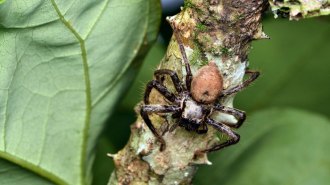 Animals
AnimalsThese spiders may sew leaves into fake shelters to lure frogs to their doom
Madagascar’s huntsman spiders use silk to turn two leaves into a cool hollow. Such microhabitats may appeal to the spiders’ prey, a study suggests.
By Jake Buehler -
 Science & Society
Science & SocietyThese science claims from 2020 could be big news if confirmed
Scientific findings reported this year that still need more proof include potential signs of life on Venus and Earth’s oldest parasites.
-
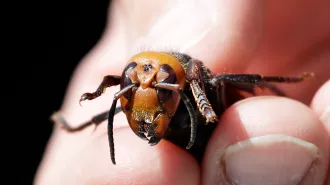 Animals
AnimalsRumors of a ‘murder hornet’ apocalypse may have been exaggerated
Murder hornets sightings in the Pacific northwest inspired a mix of concern and delight.
-
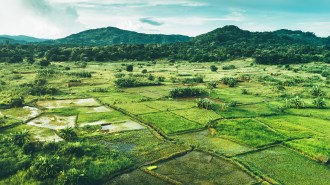 Animals
AnimalsClearing land to feed a growing human population will threaten thousands of species
Changing where, how and what food is grown could largely avoid biodiversity losses, scientists say.
-
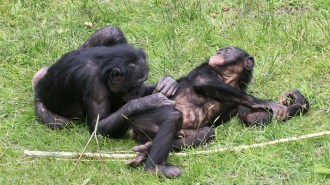 Animals
AnimalsBonobos, much like humans, show commitment to completing a joint task
Experiments with bonobos suggest that humans aren’t the only ones who can feel a sense of mutual responsibility toward other members of their species.
By Bruce Bower -
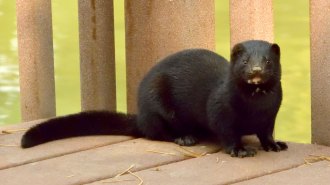 Animals
AnimalsA mink in Utah is the first known case of the coronavirus in a wild animal
A U.S. mink is so far the only known free-ranging animal to have contracted the coronavirus and likely got infected from a nearby mink farm.
-
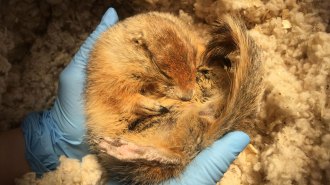 Animals
AnimalsThese Arctic squirrels recycle bits of their own bodies to survive winter
Arctic squirrels not only slow their metabolism while hibernating, but also harvest crucial substances from their muscles.
-
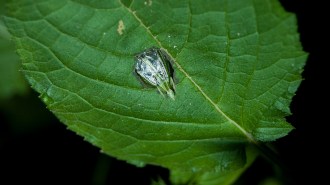 Animals
AnimalsSmall, quiet crickets turn leaves into megaphones to blare their mating call
A carefully crafted leaf can double the volume of a male tree cricket’s song, helping it compete with larger, louder males for females.
-
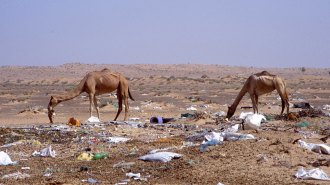 Animals
AnimalsPlastic waste forms huge, deadly masses in camel guts
Eating plastic isn’t just a sea animal problem. Researchers found suitcase-sized masses of plastic in dromedaries’ guts in the United Arab Emirates.
By Asher Jones -
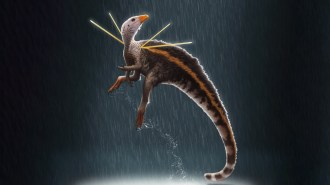 Life
LifeA newfound feathered dinosaur sported fuzz and weird rods on its shoulders
A Brazilian dinosaur with stiffened pairs of ribbonlike feathers emerging from the shoulders is unlike any found before.
-
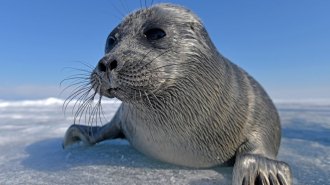 Animals
AnimalsUsing comb-shaped teeth, Baikal seals feed on tiny crustaceans like whales do
Seals in Lake Baikal use comb-shaped teeth to catch scores of amphipods, a study finds. The diet may be behind the seals’ relative success.
By Jake Buehler -
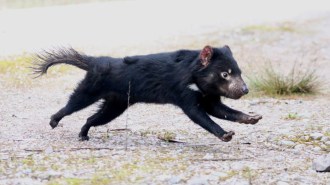 Animals
AnimalsA highly contagious face cancer may not wipe out Tasmanian devils after all
Devil facial tumor disease has killed so many Tasmanian devils that it was feared they would die out. But a new analysis finds its spread is slowing.